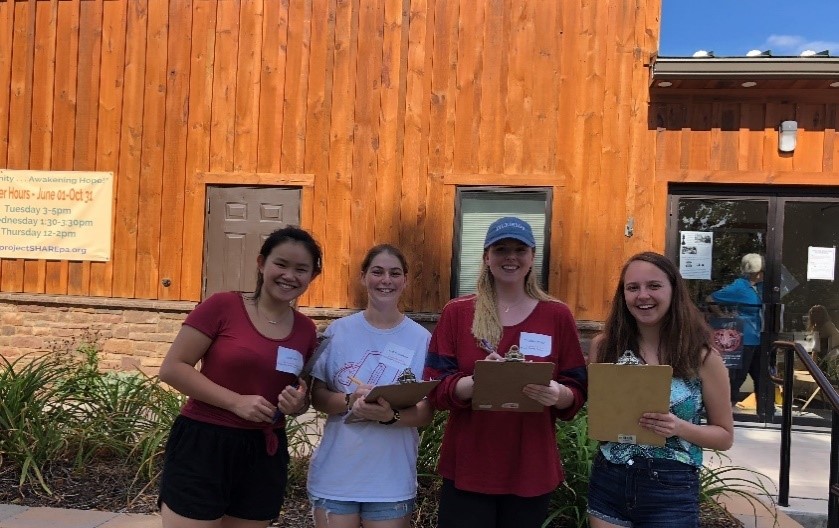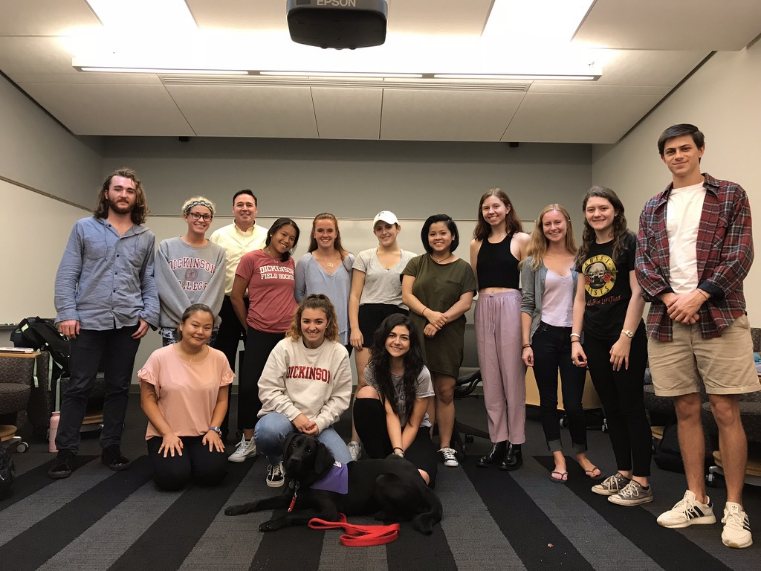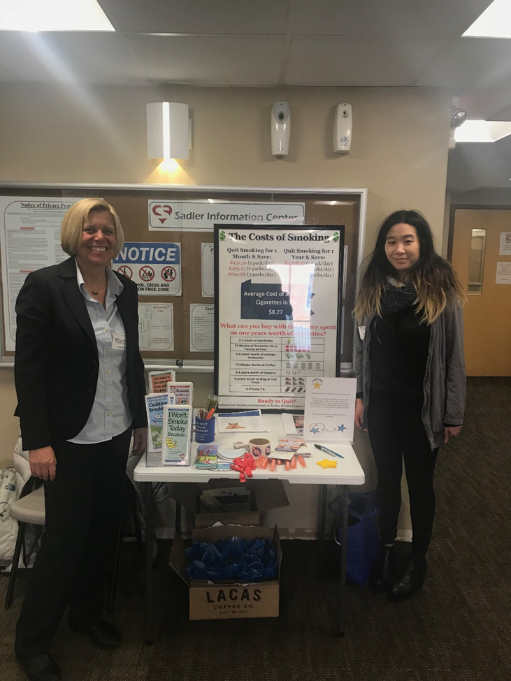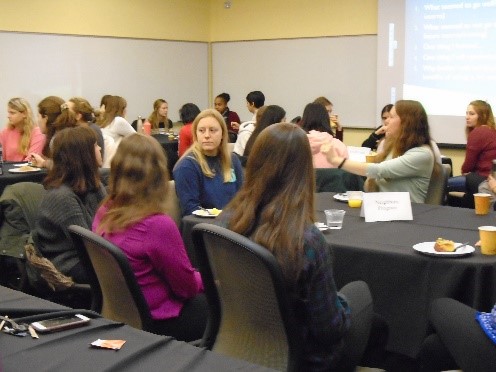At Dickinson, community-based learning and community-based research play large roles in many students’ lives.
Community-based learning courses allow students to serve community partners in practical tasks—such as activities that facilitate the development of social and behavioral skills among those who require additional assistance—and then incorporate these experiences into classroom learning.
Community-based research usually occurs at the upper level, in which students’ research addresses questions of significance to community partners. For instance, students may be involved with conducting patient satisfaction surveys in partnership with a local community-based health center or surveying consumers at a local food distribution center.
We use the term community service to refer to students doing work in a cocurricular or extracurricular context in which they offer time and energy outside of class to serve a community partner’s organizational mission.
Read below to see how students in the Department of Psychology have participated in partnering with our community!
Community-Based Learning and Community-Based Research, 2018-19 Year in Review

Lydia Orr, Andi Rosenblatt, Courtney Pollard, and Emily Melville conducting analyses at Project SHARE
Students in Professor Guardino’s PSYC 320 (Research Methods in Health Psychology) interviewed clients at Carlisle's food bank, Project SHARE, to determine factors that influence client participation in the organization's cooking and nutrition classes as well as client satisfaction with food-distribution methods. Results showed that the vast majority of clients believed attending the classes would benefit them in various ways, including learning to cook healthy food and meeting others who enjoy cooking. While clients perceived the benefits of attending the classes, they also reported barriers that prevented them from doing so, such as scheduling conflicts and lack of childcare.
Overall, clients were satisfied with the variety of fruits and vegetables offered at distribution and reported eating all or most of the items they received. We hope that the information collected during this study will be useful to Project SHARE in developing strategies to further engage their clients, and promoting the organization’s important missions of “nourishing our community” and “awakening hope.”

Students in Psyc 410 working with Dickinson Dog House
In his PSYC 410 course (Seminar in Learning), Professor Rauhut’s students worked with the Dickinson Dog House as part of their behavior modification topic. The Dog House is a campus group currently partnered with Susquehanna Service Dogs working to raise and train puppies as facility dogs. Through the connection between animal learning techniques (e.g., positive reinforcement) and altering human behaviors, students were able to see the training techniques discussed in class (shaping, cueing, etc.), applied to the dogs.
Professor Kingston’s PSYC 375 class (Research Methods in Community Psychology) worked with the Cumberland County Housing and Redevelopment Authorities in Carlisle. Students conducted a needs assessment of residents living in an independent living housing development for low-income seniors.
Community-Based Learning and Community-Based Research 2017-18 Year in Review

Professor Marie Helweg-Larsen and student researcher Lia Sorgen volunteering at Sadler Health Center during the Great American Smokeout
Professor Helweg-Larsen and research assistants in her smoking lab volunteered at Sadler Health Center in Carlisle to help encourage patients to make a commitment to not smoke for one day—on November 15, the “Great American Smokeout.” Lia Sorgen ’18, Amanda Nierva ’18 and Meg Booth ’19 volunteered. Professor Helweg-Larsen attended the meeting of the Society for Personality and Social Psychology in Atlanta in March 2018, where she and Smoking Lab students Sorgen, Nierva, Mariah Weigert ’17 and Erica Marshall ’17 presented “Stigmatization and the Role of Rejection Sensitivity Among Heavy Smokers.”

Students of Psyc 165 reflecting with community partners
Students in Professor Ambwani’s PSYC 165 course (Psychopathology) interned at the Autism School, CPARC Neighbors Program and NHS STAR Center throughout the fall semester.
Mia Brenneman ’19 has participated in community outreach for the past seven years. She volunteers at the Red Tomato Farm in Newville, teaching dance to the participants in their day program. She also volunteers at the Neighbors Program in Carlisle (where she initially started as a student intern in Prof. Ambwani’s PSYC 165 course), where groups go on community outings, volunteer at Project Share and the YWCA, explore the exhibits at the Trout Gallery and visit local cafes as a way to involve participants in the greater community.